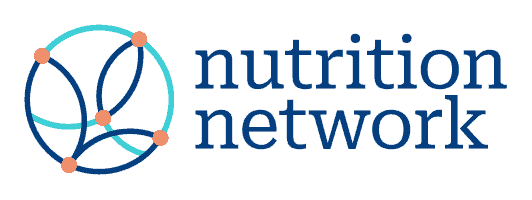
Stress – a term that we are all so familiar with it almost feels as if its just part of every day life. We are stressed at school, stressed at work, stressed in our relationships, stressed with the bank manager, stressed in the traffic…….stressed, stressed, stressed!!!
But what exactly is stress and how does it effect us?
The term stress has several different meanings. It can mean excitement or nervous anticipation of a positive event – ‘good stress’ or it can mean a negative state of fatigue, fear, frustration or an inability to cope – ‘bad stress’. ‘Bad stress’ is what we are often referring to in general conversation as a alluding to a feeling of being psychologically ‘stressed out’ (1).
In the scientific literature, stress is commonly defined as a real or perceived threat to one’s homeostatic equilibrium – a definition that has largely focused on the physiological impact of stress. An episode of acute stress (often referred to as the ‘fight or flight response’) results in a cascade of events. Activation of the sympathetic nervous system, a branch of the autonomic nervous system which governs respiration, heart rate, blood pressure, hormone release and digestion, causes an increase in respiration, heart rate and blood pressure, as well as the release of stress-related hormones. Glycogen is hydrolysed and gluconeogenesis stimulated, releasing glucose to tissues (brain, skeletal and cardiac muscle primarily) requiring extra amounts of energy in an attempt to maintain homeostasis. The sympathetic nervous system also inhibits the effects of insulin, as well as functions such as digestion, growth and reproduction, not considered necessary during a period of acute stress (2). The Hypothalamic-pituitary-adrenal (HPA) axis is also activated, resulting in the release of a number of hormones and the coordination of a complex series of metabolic events, all essential for survival and adaptation. In healthy individuals stress events are only short lived as the parasympathetic nervous system counterbalances this acute response and returns the body to a state of homeostasis. However, when a stressor is overwhelming and cannot be resolved the stress response becomes chronic and pathology can develop, affecting multiple organs and tissues. Here are just a few ways stress affects our bodies:
Brain structure and stress:
Chronic stress has been linked to macroscopic changes in the brain, involving volume and physical changes to neural networks. Similar changes have been found, postmortem, in people with a history of depression, suggesting that chronic stress may have some influence on mental health disorders associated with chronic stress, such as severe trauma, significant negative life events and/or long-term psychosocial distress.
Immune system and stress:
Stress receptors are found in cells of the immune system and it has been shown that psychological stress can induce an immune response similar to that caused by an infection or tissue damage. If the brain perceives a psychological stressor as a threat, it initiates an immune response intended to protect and prevent damage. If the stress is not relieved and the immune system’s response prolonged, this can lead to a state of chronic, low-grade inflammation – a precursor to a number illnesses. Cardiovascular disease, diabetes, cancer, auto-immune syndromes and mental illness have all been linked to stress and low-grade inflammation.
Obesity and stress:
It may seem somewhat counter-intuitive that chronic stress, which physiologically requires more energy, can cause obesity but it appears to do just that. By promoting the accumulation and/or redistribution of energy stores, chronic stress can lead to weight gain and the deposition of visceral adipose tissue in some people. In fact, stress is identified as one of the most reliable predictors of obesity and other chronic diseases.
Eating behaviour and stress:
Food choices and eating patterns are also often affected by stress. During times of significant psycho-social stress, people often report an increase in appetite and a craving for more sugary foods. They tend to choose food that is dense in calories and high in sugar, fat, and salt. All of which gives the brain a sense of ‘rewarding’. This over-consumption of food and calories ‘for comfort’ is linked to the development of insulin resistance, metabolic syndrome and general obesity.
So where to from here:
The impact of stress in our lives has both physical and psychological implications for our health, as it affects a myriad of body systems. Identifying ways in which to reduce stress and regain a state of homeostasis, or balance, is becoming increasingly important as the pace of life and all its demands increase. Making healthy and informed choices about what and how we eat, particularly during times of high emotional stress, is a significant factor in our overall health. The evidence supporting LCHF nutrition as a means to reduce physiological ‘stress’ in one’s body is mounting. Choosing to follow am LCHF diet won’t necessarily stop your children from arguing over who gets to sit in the front seat on the way home from school but its impact on health concerns, such as obesity, weight loss, diabetes, cardiovascular disease, general energy levels, negative eating behaviours and mental clarity can be profound.
Join Dr Hassina Kajee, Specialist Physician and Obesity expert, discuss in more detail the impact stress has on health and what actions can be taken to start to address and reduce the very real impact of stress on one’s physical and psychological health.
Join us this Thursday the 30th of August at 21:00 (SAST)
Access to this exclusive webinar is $20, and FREE for Nutrition Network students enrolled in the training
Register by following this link: https://bit.ly/2MbcykY
Here is the webinar time in various time zones:
- UK – 20:00
- New York – 15:00
- Sydney – 05:00 +1
- Brazil – 16:00

